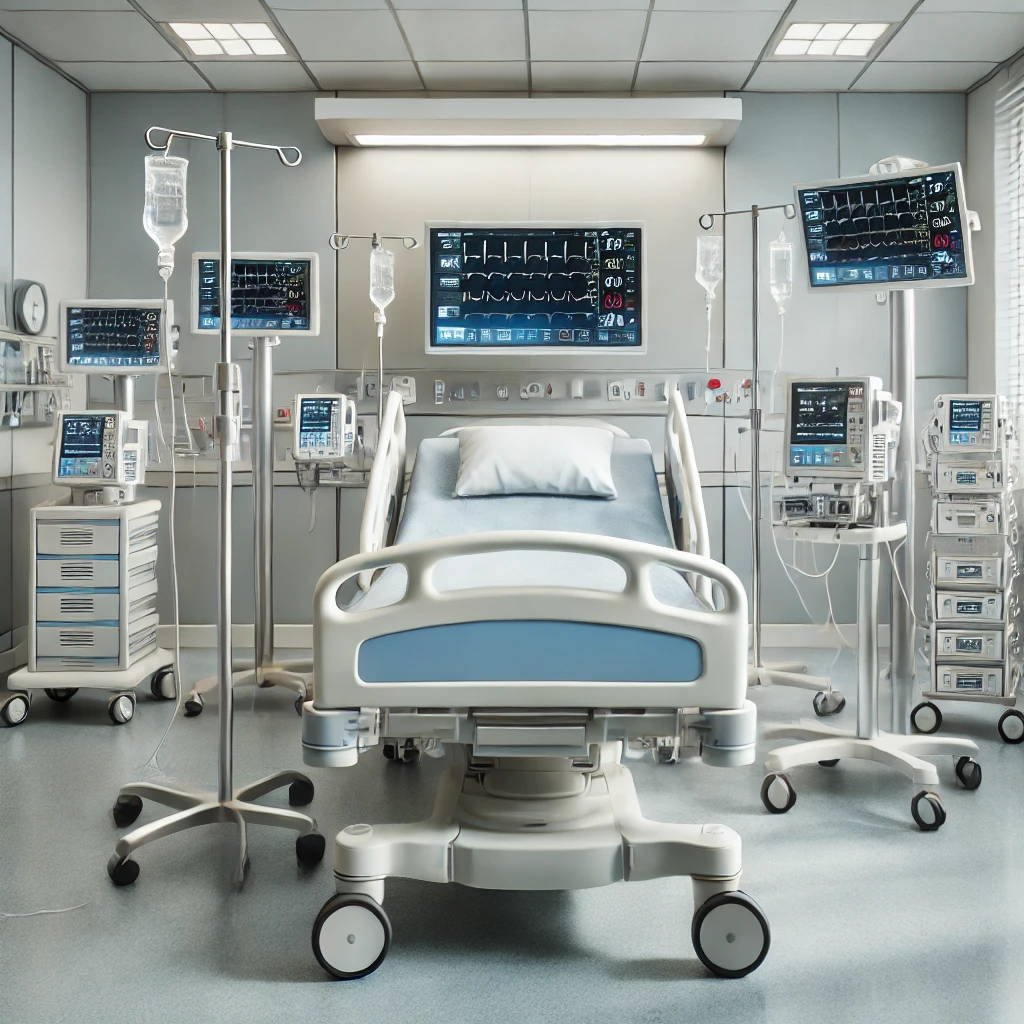Essential Hospital Equipment for Modern Healthcare Facilities

Introduction
Hospitals rely on a vast array of specialized equipment to provide effective medical care. From diagnostic tools to life-support systems, hospital equipment plays a crucial role in patient treatment and recovery. In this article, we will examine the most essential hospital equipment, its functions, and its impact on healthcare quality.
Essential Hospital Equipment Categories
1. Diagnostic Equipment
Diagnostic tools are fundamental in identifying diseases and guiding treatment plans. Some of the most common diagnostic devices include:
- Electrocardiogram (ECG) Machines: Used to monitor heart activity and detect cardiovascular issues.
- X-ray Machines: Provide internal imaging for diagnosing fractures, infections, and organ conditions.
- Ultrasound Devices: Utilize sound waves to create real-time images of internal structures, commonly used in obstetrics and cardiology.
- Magnetic Resonance Imaging (MRI) & CT Scanners: Offer detailed imaging for detecting tumors, neurological conditions, and injuries.
2. Patient Monitoring Systems
Monitoring systems track vital signs and provide real-time data to healthcare providers. Key monitoring devices include:
- Vital Signs Monitors: Measure heart rate, blood pressure, oxygen saturation, and temperature.
- Cardiac Monitors: Continuously observe heart activity, especially in ICU and emergency settings.
- Fetal Monitors: Assess fetal heart rate and contractions during labor.
3. Surgical Equipment
Operating rooms require specialized tools for safe and efficient surgical procedures. Common surgical equipment includes:
- Anesthesia Machines: Deliver controlled amounts of anesthesia gases to patients undergoing surgery.
- Surgical Tables & Lights: Provide a stable and well-lit environment for surgeons.
- Electrosurgical Units: Use high-frequency electrical currents to cut, coagulate, and minimize blood loss during surgery.
4. Life-Support Equipment
Life-support devices are critical for sustaining patients with severe medical conditions. These include:
- Ventilators: Assist patients who cannot breathe on their own.
- Dialysis Machines: Remove waste and excess fluids from patients with kidney failure.
- Infusion Pumps: Deliver precise amounts of medications, fluids, or nutrients intravenously.
5. Emergency & Trauma Equipment
In emergency departments, rapid response equipment is essential for immediate medical intervention:
- Defibrillators: Restore normal heart rhythm in cases of sudden cardiac arrest.
- Crash Carts: Mobile units stocked with emergency medications, airway tools, and resuscitation supplies.
- Stretchers & Wheelchairs: Facilitate patient transport within the hospital.
6. Sterilization & Infection Control Equipment
Preventing infections in hospital settings is a top priority. Essential sterilization tools include:
- Autoclaves: Use steam and pressure to sterilize medical instruments.
- Ultraviolet (UV) Sterilizers: Disinfect surfaces and air to reduce hospital-acquired infections.
- Personal Protective Equipment (PPE): Includes gloves, masks, gowns, and face shields to protect healthcare workers and patients.
7. Hospital Beds & Furniture
Hospital beds and related furniture enhance patient comfort and facilitate medical care. Important hospital furniture includes:
- Adjustable Hospital Beds: Allow for better patient positioning and mobility.
- Overbed Tables: Provide convenience for patients who require meals or medical equipment at bedside.
- IV Stands: Hold intravenous bags securely for fluid administration.
The Role of Hospital Equipment in Patient Care
The availability and quality of hospital equipment directly impact patient outcomes. Well-equipped hospitals can diagnose and treat conditions more efficiently, reducing mortality rates and hospital stays. Moreover, modern equipment enhances precision, minimizing medical errors and complications.
Challenges in Hospital Equipment Management
1. High Costs & Budget Constraints
Many hospitals struggle with the high costs of acquiring and maintaining medical equipment. This issue is particularly significant in low-resource settings.
2. Equipment Maintenance & Downtime
Regular maintenance is crucial to ensure equipment functionality. Malfunctioning or outdated devices can compromise patient safety.
3. Training & Technological Adaptation
Medical staff must be adequately trained to use complex equipment effectively. The rapid advancement of medical technology requires continuous education and adaptation.
Future Trends in Hospital Equipment
1. AI-Integrated Devices
Artificial intelligence is enhancing diagnostic accuracy and automating routine medical processes, improving efficiency.
2. Portable & Wearable Medical Technology
Compact, wearable monitors allow continuous health tracking, reducing hospital visits.
3. Sustainable & Energy-Efficient Equipment
Eco-friendly innovations are reducing energy consumption and medical waste, contributing to sustainable healthcare.
Conclusion
Hospital equipment is the backbone of modern healthcare, ensuring efficient diagnostics, treatment, and patient support. From life-saving ventilators to cutting-edge imaging technology, these devices are indispensable in medical settings. Investing in advanced equipment, regular maintenance, and staff training will enhance patient care and hospital efficiency in the years to come.

